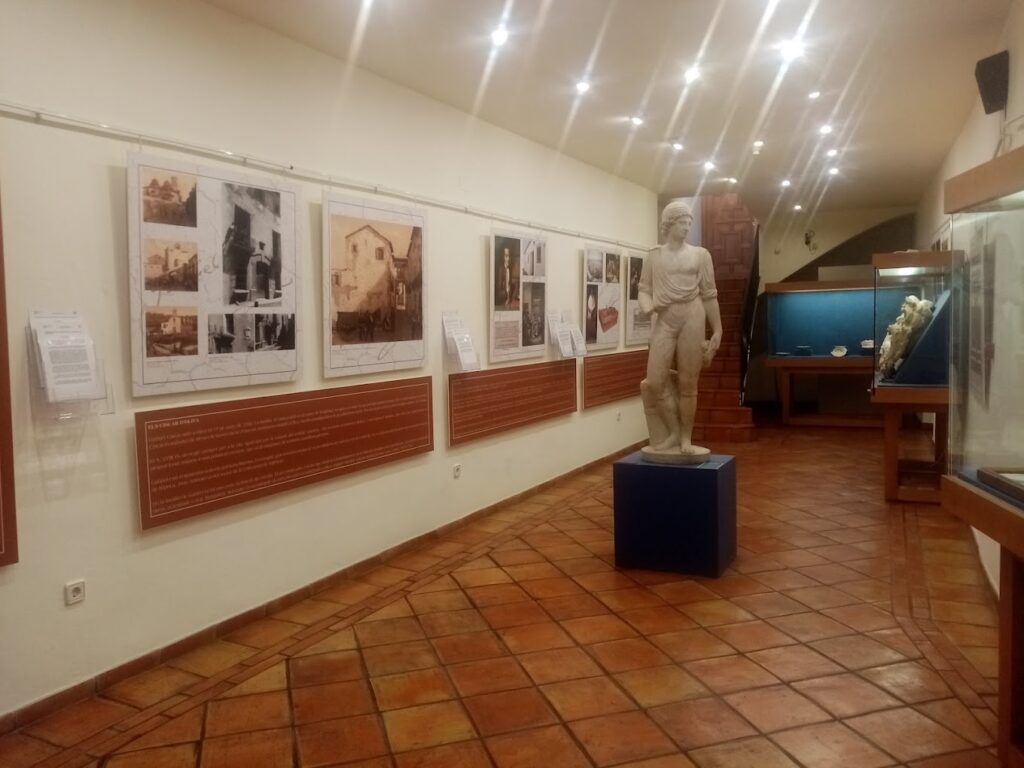Tucked away in the picturesque Spanish town of Oliva, with its golden beaches and tranquil Mediterranean atmosphere, lies a treasure trove of history: The Archaeological Museum of Oliva. This esteemed institution is a guardian of the past, inviting locals and tourists alike to embark on a journey through time. This article unveils the layers of history encased within the museum’s walls, offering a glimpse into the lives of those who walked the streets of Oliva long before us.
A Portal to Ancient Civilizations
The Archaeological Museum of Oliva stands as a testament to the rich historical tapestry of the region. Housing artifacts dating back to the Paleolithic era, the museum offers a comprehensive narrative of human habitation in the area. Each exhibit is meticulously curated to provide a chronological exploration of the past, making it a premier educational resource for understanding the evolution of local cultures.
The Collection: A Glimpse into the Past
Upon entering the museum, visitors are greeted by displays that chronicle prehistoric times, showcasing tools, and pottery shards that speak to the ingenuity of early humans. As guests move through the exhibits, they are transported to the Bronze Age, where intricate jewelry and weapons hint at the societal complexities of the time.
The Iron Age section presents the Iberians, the original inhabitants of what is now Oliva, through a stunning collection of ceramics and sculptures. These artifacts not only depict the artistry of the Iberians but also their daily lives, religious practices, and social structures.
The Roman conquest of the Iberian Peninsula brought significant change, and the museum’s Roman exhibit vividly portrays this through an array of coins, architectural fragments, and personal items. These remnants paint a picture of a vibrant Roman Oliva, complete with its own forum, thermal baths, and aqueducts.

A Jewel of Medieval Oliva
Moving forward in time, the museum dedicates a significant portion of its space to the Medieval era, highlighting the Islamic influence on the town before it was reconquered by Christian forces. The blend of cultures is evident in the pottery, textiles, and weaponry from this period. A noteworthy feature is the recreation of a part of an Islamic home, providing an immersive experience into medieval domestic life.
Unearthing Oliva: The Archaeological Process
Beyond showcasing artifacts, the museum takes an educational stance by elucidating the archaeological process. Interactive displays explain how items are discovered, preserved, and studied, offering insight into the meticulous work that goes into understanding our ancestors. The museum also highlights ongoing archaeological projects in the vicinity, emphasizing the active role it plays in uncovering Oliva’s history.
Experiencing History Through Technology
In an effort to bridge the gap between ancient times and the modern world, the Archaeological Museum of Oliva integrates technology into its exhibits. Digital reconstructions and interactive touchscreens allow visitors to visualize historical sites as they once were, while virtual reality stations offer an immersive experience of walking through ancient Oliva.
The Museum’s Role in Cultural Preservation
The Archaeological Museum of Oliva is not merely a repository of artifacts; it is a center for cultural preservation. It organizes workshops, seminars, and educational programs aimed at fostering a deeper appreciation of the region’s history among the community, especially the youth. By engaging the public in the preservation of their heritage, the museum ensures that the legacy of Oliva’s past continues to inform its future.
Connecting with the Community
The museum extends its reach beyond the scholarly by hosting cultural events that celebrate Oliva’s history, such as reenactments of historical events, traditional craft fairs, and exhibitions of contemporary art inspired by Oliva’s past. It serves as a communal space where the past and present of Oliva’s people converge, enhancing the town’s cultural vitality.
A Hub for Historians and Researchers
For historians and researchers, the museum offers a rich database of primary sources and artifacts. Its archives are open to scholars seeking to delve deeper into the Mediterranean’s historical narrative, making it a focal point for academic study and discourse on the region’s archaeological significance.

Tourism and Economic Impact
The Archaeological Museum of Oliva also contributes to the town’s tourism industry. It attracts history enthusiasts from around the globe, bolstering local businesses and fostering international interest in Oliva’s heritage. The museum not only enhances visitors’ understanding of the town’s history but also leaves a lasting impression of the enduring legacy of the civilizations that once flourished here.
Preserving the Future by Unveiling the Past
As custodians of Oliva’s history, the Archaeological Museum goes beyond passive display to active preservation. It collaborates with international organizations to ensure that the artifacts are conserved according to the latest standards, guaranteeing that these relics of the past survive for future generations to study and appreciate.


